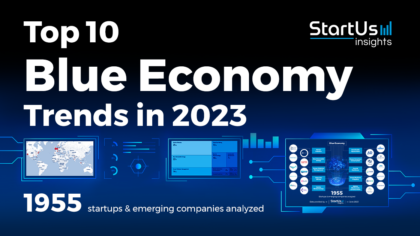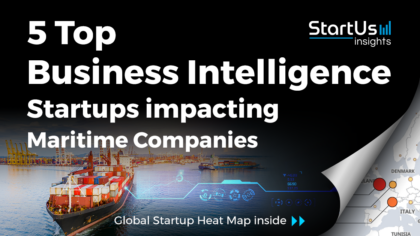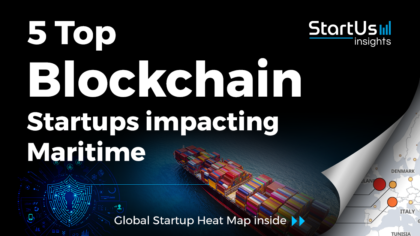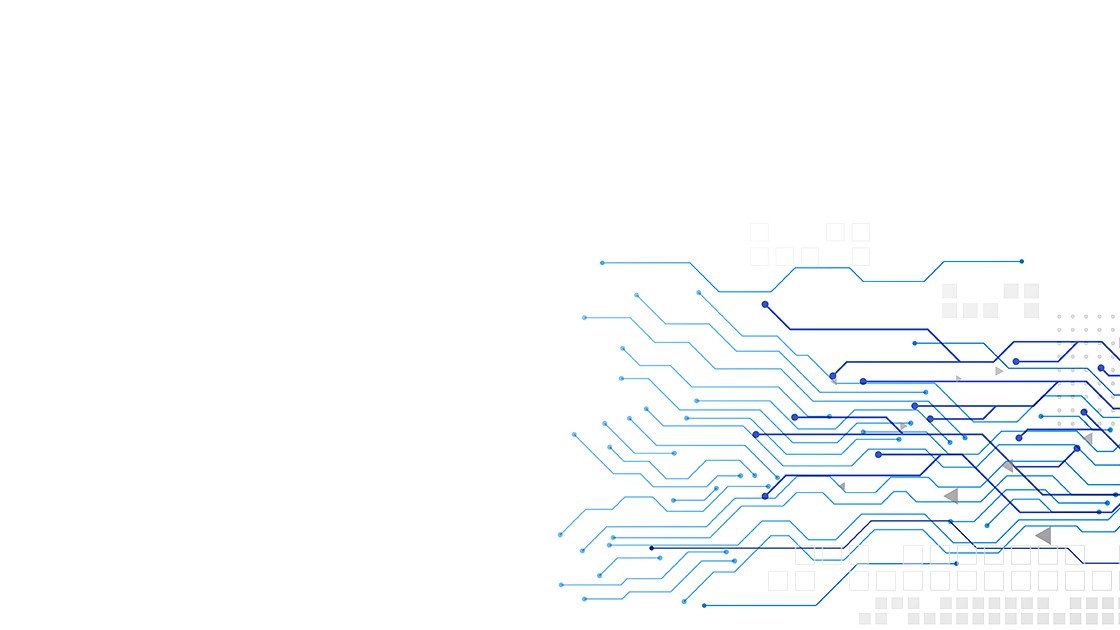Supply and demand imbalances, environmental imperatives, and lack of expert workforce are significant challenges in the maritime industry. The future trends in the maritime industry minimize the impact on marine operations. Transition to cleaner energy sources and energy-efficient integrations are reducing the environmental consequences of the industry.
Artificial intelligence (AI), big data and analytics, the Internet of Things (IoT), robotics, and blockchain are applied to various segments to improve operational efficiency. Additionally, immersive reality technologies like augmented and virtual reality specifically focus on training, engineering, and inspection. This report was published in February 2022 and updated in August 2023.
Top 10 Trends in the Maritime Industry (2024)
- Artificial Intelligence
- Clean Energy
- Maritime Robotics
- Energy-Efficient Integrations
- Maritime IoT
- Blockchain
- Big Data & Analytics
- Immersive Reality
- 5G
- Cybersecurity
Innovation Map outlines the Top 10 Maritime Trends & 20 Promising Startups
For this in-depth research on the Top Maritime Industry Trends and startups, we analyzed a sample of 1163 global startups & scaleups. This data-driven research provides innovation intelligence that helps you improve strategic decision-making by giving you an overview of emerging technologies in the maritime industry. In the Maritime Industry Innovation Map below, you get a comprehensive overview of the innovation trends & startups that impact your company.
These insights are derived by working with our Big Data & Artificial Intelligence-powered StartUs Insights Discovery Platform, covering 3 790 000+ startups & scaleups globally. As the world’s largest resource for data on emerging companies, the SaaS platform enables you to identify relevant technologies and industry trends quickly & exhaustively.
Tree Map reveals the Impact of the Top Maritime Trends
The Tree Map below illustrates the top 10 maritime trends that will impact marine companies in 2024. AI is the top maritime trend due to its wide range of applications across the industry, including route and fuel optimization, autonomous navigation, and predictive maintenance. Clean energy sources and energy-efficient integration constitute a larger part of the trend due to decarbonization.
Maritime robotics compensates for the lack of workforce in the industry while IoT, blockchain, big data, and analytics enable data-driven maritime decision-making. Immersive reality further enhances training and maintenance tasks. Lastly, 5G and cybersecurity strengthen the communication network for reliable offshore connectivity.
Global Startup Heat Map covers 1163 Maritime Startups & Scaleups
The Global Startup Heat Map below highlights the global distribution of the 1163 exemplary startups & scaleups that we analyzed for this research. Created through the StartUs Insights Discovery Platform, the Heat Map reveals that Western Europe is the biggest hub for maritime technologies followed by the US.
Below, you get to meet 20 out of these 1163 promising startups & scaleups as well as the solutions they develop. These 20 maritime technology innovations are hand-picked based on criteria such as founding year, location, funding raised, and more. Depending on your specific needs, your top picks might look entirely different.
Interested in exploring all 1100+ maritime startups & scaleups?
Top 10 Maritime Industry Trends in 2024
1. Artificial Intelligence
The maritime sector deploys artificial intelligence for various applications such as predictive maintenance, autonomous navigation, and route optimization, among others. However, the critical role of AI in these functions is to process the vast data available through sensors, public information systems, and asset tracking to generate actionable insights.
Startups leverage the processed information to improve forecasting accuracy and optimize fuel efficiency, maintenance, and operational costs. Apart from that, AI in underwater robots and vehicles facilitates search and rescue operations along with assisting in underwater repairs. Startups also provide digital twins of ports, ships, and fleets using AI to monitor their operations continuously, improving vessel and port management.
Orca AI develops a Collision Avoidance System
Orca AI is an Israeli startup that provides an AI-based collision avoidance system for ships. The startup combines high-resolution thermal imaging and deep learning to create an awareness system. It offers predictions and alerts on hazards to avoid collisions and, in turn, save lives. Additionally, the thermal camera ensures visibility in low-light conditions while continuous data monitoring optimizes risk assessment to improve event response. Orca AI also develops a visibility platform for fleet management to ensure safety and regulatory compliance.
Bearing provides a Smart Routing Engine
US-based startup Bearing offers a smart routing engine for maritime operations. The startup combines deep learning with various real-world data sources such as the latest weather forecasts and market rates to generate accurate ship performance models. As a result, the routing engine’s recommendations automatically adapt throughout the voyage. This allows fleet managers and vessel owners to reduce fuel consumption and improve overall fleet management.
2. Clean Energy
Marine heavy fuel oil (HFO), a petroleum-based product, is the most common propulsion fuel in ships, accounting for a great deal of the emissions from maritime operations. Like other industries, transitioning to low-carbon, renewable energy sources is crucial for maritime decarbonization. For this, the industry is looking up to electric propulsion technologies, biofuels, wind energy, solar power, and hydrogen fuel. Many startups already offer retrofittable devices to electrify boats.
To strengthen this transition, large marine companies need to integrate low-carbon fuels throughout their fleet. Biofuels are an economical and low-carbon choice for a start as they readily replace HFO without any structural upgrades. The overall trend is moving towards electric and hydrogen propulsion as they have huge impacts on emissions without affecting vessel productivity.
TECO 2030 makes Fuel Cell Systems
Norwegian startup TECO 2030 engineers fuel cell systems for heavy-duty marine applications. The startup’s modular fuel cell system enables easy scalability for megawatt-scale power generation and supports a dynamic response time. Its compact design also simplifies retrofitting the fuel cell into existing fossil-fuel-powered ships.
Additionally, the system integrates an advanced fuel conditioning system that supports operations on various H2 carriers like liquid H2, ammonia, and methanol. TECO 2030’s solution thus allows maritime companies to adopt zero-emission power sources for vessel operations.
Unnmukt Urja produces Bio-Crude
Unnmukt Urja is an Indian startup that provides bio-crude as a drop-in fuel for the maritime industry. The startup partners with Licella, an Australian company, to make use of its hydrothermal liquefaction platform, Cat-HTR. In addition, Unnmukt Urja develops a smart supply chain system to reduce the cost of agricultural waste. By combining these solutions, the startup offers an economical lignocellulosic renewable energy to replace crude oil. As a result, ship and fleet owners are able to integrate low-cost bio-crude without massive capital investments.
3. Maritime Robotics
Lack of workers and their safety in marine environments are growing concerns in the maritime sector. To tackle these issues, startups are building maritime robotics solutions with AI and advanced hardware. Apart from pick-and-carry robots that assist in logistics operations, robots tailored for maritime maintenance, cleaning, rescue, and inspection are also becoming mainstream. For instance, startups offer automated robots that take over underwater maintenance tasks.
For this, the robots have specialized arms and hardware systems. Similarly, drones are used at ports and ships for inspections and provision delivery. Apart from replacing workers, the robots lower the workers’ exposure to life-threatening conditions during maintenance and inspections.
Alicia Bots develops a Multi-Purpose Robot
US-based startup Alicia Bots manufactures a multi-purpose robot for vessel cleaning and maintenance. The startup’s robot, Roverclean 1.0, functions in both remote-operated and autonomous modes to remove sludge from tanks, detect corrosion, polish propellers, and clean hulls. In addition, Roverclean 1.0 assists with repairs, inspections, and data collection. This allows vessel operators and maintenance teams to increase hull resistance and reduce biofouling, in turn, improving fuel efficiency. Since the robot also functions underwater, worker safety is not compromised either.
MarineRS builds Marine Robots
Russian startup MarineRS makes marine robots that carry unmanned aerial vehicles (UAVs) and underwater robots. Moreover, the robot contains several devices for environmental monitoring, surface and water temperature measurement, and wave height calculation, among others. Since it is a carrier, it functions both as a service platform and for hydrography and underwater archaeology purposes. The startup’s robot also enables the industry to establish a maritime internet to ensure 24×7 connectivity.
4. Energy-Efficient Integrations
Maritime companies increasingly seek to use energy-efficient integrations to minimize GHG emissions and fuel costs. This entails improvements of various systems in the vessel, from scrubber and rudder to lubrication, coatings, and propulsion systems. For example, some startups provide waste heat recovery solutions while others work on improvements in the ship and exhaust design. These additions allow maritime companies to significantly improve the sustainability of their operations while reducing energy and fuel costs.
CARNOT provides Energy Efficient Engines
CARNOT is a British startup that creates energy-efficient engines for ships. The startup replaces metal components in conventional engines with ceramic parts that withstand high temperatures. As a result, the solution diverts the energy otherwise required to cool the engine for propulsion, increasing energy efficiency. Moreover, the startup’s engines run on hydrogen and biofuels to further move towards net zero. These opportunities allow bulk carriers, tankers, and container ships to significantly reduce fuel usage and the total cost of ownership, as well as carbon emissions.
FinX advances Nautical Propulsion
FinX is a French startup that develops bio-inspired boat engines. The startup deploys an undulating elastomer membrane to use this wave pattern to propel watercraft. However, the FinX solution utilizes low amplitude and high frequency to mitigate the effects of pitching and maximize engine power density. And since its membranes undulate like a fish fin, FinX-powered boats move in a straight line with improved hydraulic efficiency. In addition, the startup uses electric motors for its propulsion technology, further reducing its environmental impacts.
5. Maritime IoT
Continuous tracking and monitoring of ships’ location is a critical process in maritime operations. This minimizes the collision risks as well as facilitates ship navigation to mitigate challenging weather conditions. IoT integration also simplifies location data acquisition while enabling tracking of various other parameters such as emissions, machine conditions, propulsion data, and structural integrity. Consequently, maritime companies receive extended visibility into processes and assets at a granular level. This transparency allows businesses to identify bottlenecks faster and avoid downtimes.
Wattson Elements builds Connected Ports
Wattson Elements is a French startup that offers FALCO, a range of IoT solutions for ports and boats. The startup’s IoT devices enable boat location monitoring and pedestal management. The FALCO cloud platform uses this data to enable real-time boat monitoring and identification as well as berth occupancy, fire, intrusion, and theft detection. This enables port agents to develop a connected ecosystem, improving visibility into port operations and facilitating data-driven decision-making.
ACUA Ocean develops Zero-Emission Maritime Autonomous Surface Ships
UK-based startup ACUA Ocean builds hydrogen-powered unmanned surface vehicles (H-USV) that do not emit carbon. The H-USV features onboard power for commercial and environmental sensors as well as AI-based processing for data analysis and decision-making at the edge. Its modular design and 4500kg payload capacity ensure long endurance and reduced harbor-to-site times. Moreover, the USV increases offshore operations efficiencies while vastly decreasing operational costs.

6. Blockchain
Manual data logging systems are slow and prone to forgery. This fuels a lack of trust between maritime companies, vessel owners, vessel operators, and ports, hindering overall productivity. Blockchain mitigates this lack of belief by ensuring transparency through foolproof data storage. Therefore, storing information on the blockchain ensures that the data is not manipulated and, in turn, provides visibility into transactional and financial operations.
Startups develop blockchain-based solutions such as automated electronic documentation platforms, payment processing systems, and smart contracts tailored for maritime applications. The blockchain-enabled transparency in the maritime value chain ensures tamper-free data and communication flow between stakeholders, thus ensuring seamless operations.
Marified offers Seafarer e-Passports
Singaporean startup Marified provides e-passports for seafarers. The startup’s blockchain-based platform allows users to issue, store, manage, and verify documents. Since the document is stored in the blockchain, authorities are able to ensure protection against forgery. This allows ship management companies, training centers, and seafarers to increase efficiency and reduce costs involved with document processing while improving the safety of lives at sea.
Thrymr Digital Insurance Solutions (TDIS) simplifies Marine Cargo Insurance
TDIS is a German startup that provides a marine cargo insurtech platform. The blockchain-powered platform automates marine cargo insurance processes, from certificate generation and verification to policy management, accounting, and compliance screening. This accelerates insurance data exchange between maritime companies and, in turn, optimizes communication between insurers, underwriters, and brokers.
7. Big Data & Analytics
Maritime tasks like route optimization and weather forecasting rely on data from IoT devices and satellites. This increases the amount of data available for processing to generate insights in vessels and harbors. Big data analyzes this raw data from the sensors and satellites to extract information, whereas advanced analytics solutions utilize this data to generate actionable insights.
Their applications include route management, weather condition monitoring, freight pattern analysis, and operational analytics. Thus, big data and analytics allow maritime companies to optimize various operations while identifying potential bottlenecks before they happen, reducing downtimes and costs.
OrbitMI provides Maritime Intelligence
OrbitMI is a US-based startup that offers maritime intelligence and analytics for fleet operators. The startup’s AI-based analytics platform, Orbit OMI, aggregates marine data such as bunker prices, port activities, trading patterns, and fleet data for efficient predictive modeling.
Orbit OMI uses this data to provide an accurate view of fleets, predict competitor locations, and gain visibility into traffic and services at ports. In addition, it enables fleet owners to capture cargo opportunities and reduce bunker procurement costs. These functions optimize fleet performance and speed up the return on investment (ROI).
Kaiko Systems offers Vessel Health Insights
German startup Kaiko Systems provides vessel health insights for merchant ships. The startup utilizes a mobile app at the crew end to facilitate inspection activities. The checklist-based routine inspection data from the smartphone app is provided to the management team ashore in real time.
Kaiko Systems also uses this data to generate and track key performance indicators (KPIs) of vessel operations as well as automate alarms and monitor problem patterns across the fleet. The solution reduces operational costs and facilitates easy collaboration for maritime companies. Further, insurance firms use the data to optimize risks and reward loss-preventing behavior.
8. Immersive Reality
Conventional maritime education and training often do not offer hands-on experience before operators are deployed at oceans, affecting seafarer competence. Augmented and mixed reality solutions assist operators by offering task-specific information during training or maintenance operations. VR, for example, provides immersive simulations of tasks at vessels, enabling more effective training.
Apart from operator training, these immersive technologies find use in the remote operation of boats and submarines, maintenance and inspection along with ship engineering and design. Remotely operated vehicles (ROVs) operate at extreme depths where divers cannot reach, which improves oceanographic research. Immersive visualization used on this data enables shipbuilders to optimize ship design and speed up part and ship manufacturing.
Synapse develops Immersive Simulations
Russian startup Synapse offers immersive safety and security simulations for seafarer training. The startup uses a computer to simulate a real-world scenario and provides the output through VR headsets. Trainees navigate through the seaboard in individual or multiplayer mode to better understand emergency response protocols. This approach improves productivity for seagoing vessels and, at the same time, enhances training efficiency at maritime institutions.
STEELCAD advances Marine Engineering
STEELCAD is a Polish startup that provides marine engineering services. The startup combines 3D laser scanning and photogrammetry to create point clouds of existing ship designs and transfers them to computer-aided design (CAD) models. This significantly speeds up product design and finalization. Along with that, STEELCAD uses AR and 3D rendering to showcase the final product in a photoreal environment. This enables vessel owners to easily track work progress and the finalized designs, improving collaboration between engineers and project owners.
9. 5G
Integrating IoT into offshore communication networks generates a high network load on the connectivity infrastructure. Besides, if maritime operations need to follow data-driven process planning, real-time information is vital to avoid disruptions in operations. 5G addresses both of the above concerns by providing a network system that handles the high volume of IoT data with low latency. Such solutions significantly optimize port operations as well as vessel traffic management. Apart from handling the data traffic, 5G also enables remote operations, including search and rescue operations.
TMS Maritime Solutions facilitates Near Shore Communication
TMS Maritime Solutions is a Spanish startup that offers managed 5G connectivity solutions for near-shore communications. In addition, the startup deploys very small-aperture terminals (VSATs) for offshore communication. This, in turn, enables robust communication between vessels and ports. The startup allows ports and harbors to readily integrate 5G without excessive upfront development or capital costs.
JET Engineering System Solutions provides 5G at Sea
JET Engineering System Solutions is a British startup that enables 5G at sea. The startup deploys autonomous and uncrewed connectivity platforms to achieve this, creating a 5G mesh. This network provides a low-latency, high-speed network for vessels and other maritime assets. In addition, it improves search and rescue operations, optimizes aquaculture management, facilitates offshore renewable asset monitoring, and enables smart ports.
10. Cybersecurity
The main disadvantage of transitioning from manual paper-based systems to digital tools is the risk of cyber threats. Malicious hackers attack the vulnerabilities in networks and connected devices to access sensitive information and take control of the system. The stolen data is sold illegally to further hack into other accounts or clients, severely damaging companies’ reputations or critical infrastructure and, in turn, increasing legal costs.
Startups tackle this threat by building off-the-shelf and bespoke cybersecurity solutions for marine settings. With increasing interest in IoT, autonomous ships, and data analytics, cybersecurity ensures the stability of ship operations, navigation systems, and critical communication networks.
CYDOME provides Fleet-Wide Cybersecurity Coverage
Israeli startup CYDOME provides fleet-wide cybersecurity coverage for the maritime industry. The startup offers a hardware device that connects with the communication network as well as software for device access and management. Once installed, the solution maps all assets, such as IoT devices, engines, and generators, to find vulnerabilities and patch them.
Besides, it applies continuous monitoring and deep analysis of several data points to mitigate cyber-attacks. The real-time detection and alerting system against unauthorized access allows fleet owners, offshore facilities, and ports to automate compliance and prevent maritime cyber piracy.
byondsec advances Cybersecurity for Maritime Fleets
Indian startup byondsec provides cybersecurity solutions for maritime operators to protect vessels from cyber threats. Its solution includes a centralized management dashboard to monitor security events across fleets in real time. The solutions also enable remote detection of issues and compliance advising. Moreover, its management console and AI technologies work to instantly detect and roll back ransomware attacks on vessels to keep all parties safe.
Discover all Maritime Trends, Innovations & Startups
Advancements in connectivity and on-premise systems enable the integration of emerging technologies in the otherwise disconnected and remote maritime sector. Clean energy and energy-efficient integrations collectively reduce the emissions of the industry. AI, robotics, big data, analytics, and blockchain further improve the efficiency of maritime operations.
The innovative maritime solutions and trends outlined in this report only scratch the surface of trends that we identified during our data-driven innovation & startup scouting process. Identifying new opportunities & emerging technologies to implement into your business goes a long way in gaining a competitive advantage.








